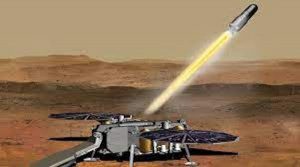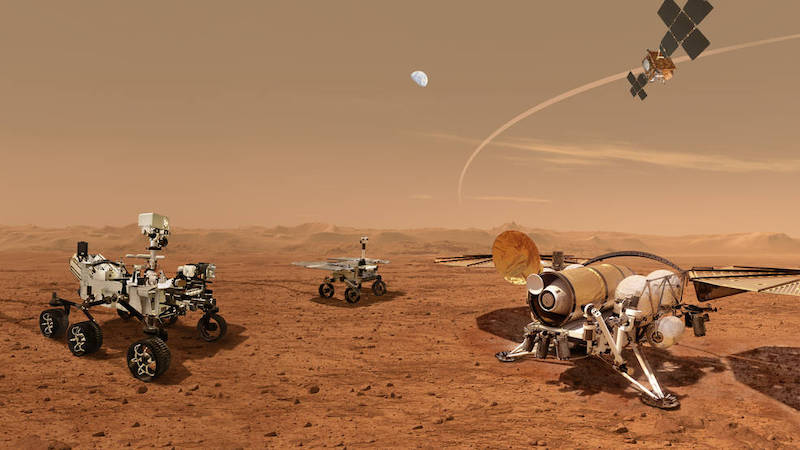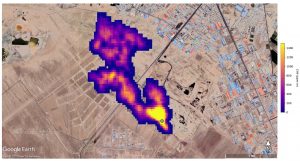China-US rivalry appears to be cranking up in space missions, as well as the Indo-Pacific region. News emerged on Monday that China is aiming to fly to Mars in late 2028, to collect rock samples and then deliver them back to Earth by 2031.
The US space agency NASA already has its Perseverance rover on the Red Planet, collecting samples, but that material is not due to be transported back to Earth for extensive scientific study until 2033.
Currently, NASA and the European Space Agency (ESA) have a joint multi-year mission planned with rovers getting samples at different sites on Mars.
However, the Chinese are planning a single Mars landing that could, if successful, bring back the first samples, which is a key scientific goal of these missions, as it could reveal if life does, or ever did exist, on the Red Planet.
Sun Zezhou, the chief designer of China’s Tianwen-1 Mars orbiter and rover mission, outlined plans on June 20 for a two-launch mission that leaves in late 2028 and brings back rock samples to Earth in July 2031, according to Space News.
“The complex, multi-launch mission will have simpler architecture in comparison with the joint NASA-ESA project, with a single Mars landing and no rovers sampling different sites,” it said.

NASA originally had a plan to launch a Sample Retrieval Lander, in conjunction with an Earth Return Orbiter mission led by the ESA in 2026, to collect the samples gathered by Perseverance and bring them back to Earth in 2031 via a rocket called a Mars Ascent Vehicle and a NASA collection system.
But NASA announced in March that it would delay the return of its Mars samples by splitting the lander mission into two spacecraft to reduce the overall risk of the mission.
It will be interesting now to see if NASA is prepared to change its plans to make a real race for this key scientific goal.
• Jim Pollard
ALSO SEE:
South Korea Joins Asian Space Race With Satellite Launch
Pentagon Eyes SpaceX ‘Quick Reaction Force’ – Intercept
China’s Space Programme Finds Evidence of Water on Moon
























